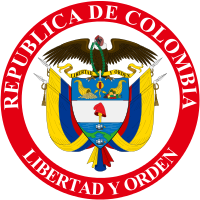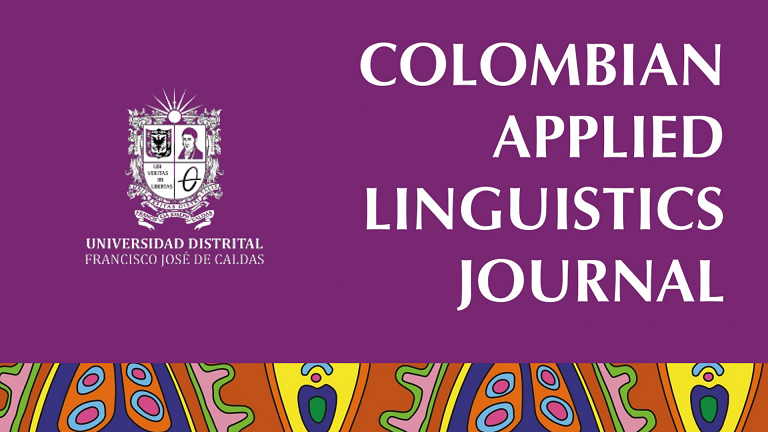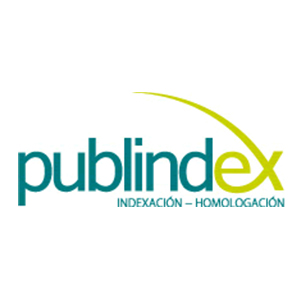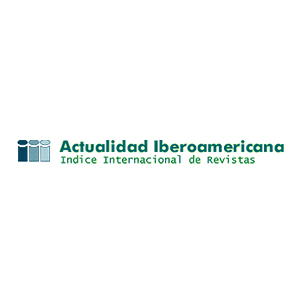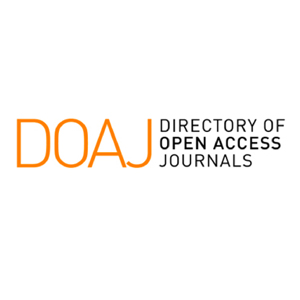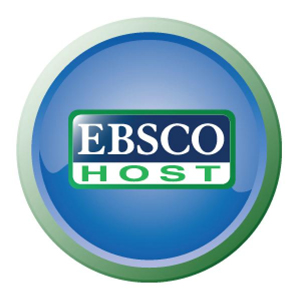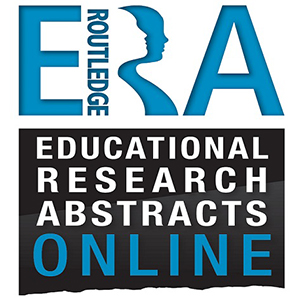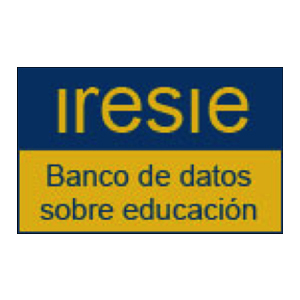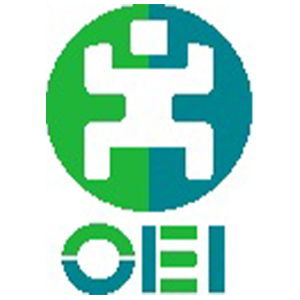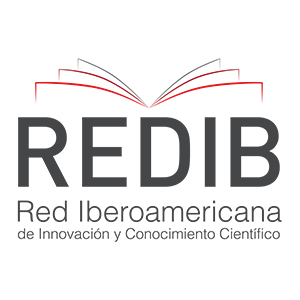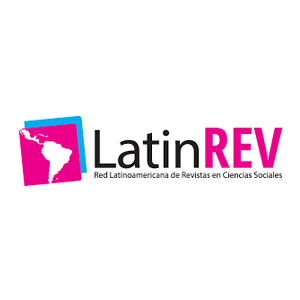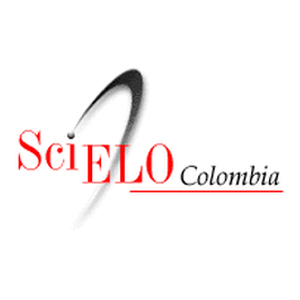English-Medium Instruction for the Internationalization of the Curriculum: Teachers’ Motives and Expectations
Inglés como medio de instrucción para la internacionalización del currículo: motivos y expectativas de docentes
Inglês como meio de instrução para a internacionalização do currículo: motivos e expectativas dos professores
Este artículo presenta los resultados de una investigación que se propuso analizar los motivos y las expectativas de docentes de una universidad pública en el noroeste de México al participar en la internacionalización del currículo mediante el uso de inglés como medio de instrucción (EMI por sus siglas en inglés), el análisis se basa a partir de las variables, atales como disciplina, antigüedad laboral, tipo de contratación y frecuencia de enseñanza en inglés. Se empleó una metodología mixta para analizar datos cuantitativos y cualitativos, recopilados mediante un instrumento digital dirigido a un total de 42 profesores que estaban acreditados para impartir asignaturas en inglés, y se obtuvieron 36 cuestionarios completos respondidos. Los resultados permiten concluir que la mayor parte de los profesores de todas las disciplinas están de acuerdo en que su principal motivo para participar en la internacionalización mediante uso de emi es “apoyar iniciativas institucionales”; en contraste, “recibir incentivos económicos por parte de programas institucionales” fue un motivo de participación con diferencias marcadas según la disciplina y el tipo de contratación. El análisis cualitativo concluye la existencia de concepciones positivas en torno a este tipo de enseñanza, por ser favorable para la universidad y como posible fuente de remuneración económica. Aunque los docentes manifiestan una motivación intrínseca hacia la formación y enseñanza en inglés, la falta de incentivos económicos igualitarios podría ser una causante de la participación limitada del docente.
educación internacional, educación superior, currículo, inglés, profesores (es)
educação internacional, ensino superior, currículo, inglês, professores (pt)
Agnew, M. (2013). Strategic planning: An examination of the role of disciplines in sustaining internationalization of the university. Journal of Studies in International Education, 17(2), 183-202. https://doi.org/10.1177%2F1028315312464655
Altbach, P., & de Wit, H. (2020) El dilema del idioma inglés. International Higher Education, 100, 26-28. Retrieved from: https://issuu.com/ceppechile/docs/ihe100
Altbach, P., & Knight, J. (2007). The internationalization of higher education: Motivations and realities. Journal of studies in international education, 11(3-4), 290-305. https://doi.org/10.1177/1028315307303542
Alvarez, L., & Steiner, M. (2019). Collaborative online international learning. From a systematic review of literature about barriers to an implementation plan. ASEM Education in a digital world, 18-29. Retrieved from: https://bit.ly/46poI33
Amador, G. (2016a). Características de la dimensión internacional del currículum en la Universidad de Colima, In Hernández & Amador (Coords.) La dimensión internacional del currículum: los primeros pasos en la Universidad de Colima. BIBLOS.
Amador, G. (2016b). El significado de la dimensión internacional de la educación superior, En Hernández y Amador (Coords.) La dimensión internacional del currículum: los primeros pasos en la Universidad de Colima. BIBLOS.
Arango, A. y Acuña L. (2018). La Internacionalización del currículo y su relación con las condiciones de calidad en los programas académicos de educación superior para la obtención de registro calificado. Revista ObIES, 2, 35-49. https://bit.ly/2HyILWv
Banegas, D., Poole, P., & Corrales, K. (2020). Content and language integrated learning in Latin America 2008-2018: Ten years of research and practice. Studies in Second Language Learning and Teaching, 10 (2), 283-305. http://dx.doi.org/10.14746/ssllt.2020.10.2.4
Barbosa, B., Santos, S., & Prado-Meza, C. (2020). There is no one way to internationalization at home: virtual mobility and student engagement through formal and informal approaches to curricula. Revista Lusófona de Educação, 47, 85-98. doi: 10.24140/issn.1645-7250.rle47.06
Becher, T. (1992). Las disciplinas y la identidad de los académicos [The disciplines and identity of academics]. Universidad Futura, 4 (10).
Beelen, J. (2011). Internationalisation at home in a global perspective: A critical survey of the 3rd Global Survey Report of IAU. International Journal of Educational Technology in Higher Education, 8(2), 249-264. https://bit.ly/374wwd0
Burquel, N., & Busch, A. (2020, April 25). Lessons for international higher education post COVID-19. University World News. https://bit.ly/3R9EkQN
Casallas, M. (2020). Internacionalización de la educación superior: más allá de la movilidad académica, en Guerrero (Comp.) Internacionalización del currículo y experiencias pedagógicas, pertinencia y aprendizaje global en educación superior. UNIMINUTO.
Castillo, E., González, E., Félix, D. & Rojas, D. (2017). Programas de evaluación del trabajo académico en México, políticas, significados y efectos. Qartuppi. https://bit.ly/38lZCFU
Clark, B. (1987). The academic profession. University of California Press.
Clarke, M., & Hui, L. (2019). Internationalization: perspectives from university faculty in the Republic of Ireland. Journal of Studies in International Education, 0(0), 1-16. https://doi.org/10.1177/1028315319888469
Clifford, V. (2009). Engaging the disciplines in internationalising the curriculum. International Journal for Academic Development, 14(2), 133-143. https://bit.ly/3li6XKu
Creswell, J. (2003). Research design: Qualitative, quantitative, and mixed methods approaches. Sage publications.
Creswell, J. (2007). Qualitative inquiry and research design: Choosing among five approaches, 2nd ed. Thousand Oaks, Sage Publications.
Edersheim, K., & Dobson, G. (2022, January 15). A new model for international higher education provision. University World News. https://bit.ly/3uf9oEc
Estévez, E., González, E., Valdés, A., Arcos, J., Ramiro, F., & Gutiérrez, L. (2020). Teaching and Research of Academics in Mexico: Preferences and dedication according to the international survey APIKS. Higher Education Forum, 17, 99-114. https://files.eric.ed.gov/fulltext/EJ1289802.pdf
Estévez, E., González, E., Valdés, A., & García-Meza, I. (2021). Orientation of Teaching, Research, and External Engagement Activities of Academics in Mexico. Acta Paedagogica Vilnensia, 47, 173-192. https://doi.org/10.15388/ActPaed.2021.47.12
Fortanet-Gómez, I. (2020). The dimensions of EMI in the international classroom: training teachers for the future university. In M. Sánchez-Perez (Ed.) Teacher training for English-Medium Instruction in Higher Education (pp. 1-20). IGI Global.
Foster, M., & Carver, M. (2018). Explicit and implicit internationalisation: Exploring perspectives on internationalisation in a business school with a revised internationalisation of the curriculum toolkit. The International Journal of Management Education, 16(2), 143-153. https://doi.org/10.1016/j.ijme.2018.02.002
Fragouli, E. (2021). Internationalisation of the curriculum: Challenges & opportunities. International Journal of Higher Education Management, 7(2), 24-30. https://bit.ly/48C87KP
Friesen, R. (2012). Faculty member engagement in Canadian university internationalization: A consideration of understanding, motivations and rationales. Journal of Studies in International Education, 17(3) , 209-227. https: //doi org/10.1177%2F1028315312451132
Gacel-Ávila, J. (2020). Internationalisation of Higher Education in Latin America and the Caribbean: In Need of Robust Policies. International Journal of African Higher Education, 7(2), 141-157. Retrieved from: https://bit.ly/3PEkcWW
De la Garza, A. (2019). Internationalizing the curriculum for STEAM (STEM + Arts and Humanities): from intercultural competence to cultural humility. Journal of Studies in International Education, 0(0), 1-13. https://doi.org/10.1177/1028315319888468
Gustafsson, M., & Valcke, J. (2021). Multiple dimensions of English-medium education, striving to initiate change, sustainability, and quality in higher education in Sweden. In: Wilkinson and Gabriëls (Eds.) The Englishization of Higher Education in Europe (pp. 215-236). University Press.
Hu, G., & Lei, J. (2014). English-medium instruction in Chinese higher education: A case study. Higher Education, 67(5), 551-567. https://doi.org/10.1007/s10734-013-9661-5
Hudzik, J. (2020, May 2). Higher education internationalists need to be disruptive. University World News. Retrieved from: https://bit.ly/3uqvEvK
Hunter, M., & Lanvers, U. (2021). Affect in EMI at a German university: Comparing insights from teachers, home, and international students. In Wilkinson and Gabriëls (Eds.) The Englishization of Higher Education in Europe (pp. 327-357). University Press. https://doi.org/10.5117/9789463727358
Jon, J., Cho, Y., & Byun, K. (2020). Internationalization by English-Medium Instruction? Professors’ decoupling behaviors to EMI policy in Korean higher education. KEDI Journal of Educational Policy, 17(2), 297-318. 10.22804/kjep.2020.17.2.007
Kigotho, W. (2022, January 27). Programme aims to build bridges, bring academics together. University World News. Retrieved from: https://bit.ly/36yQPSZ
King, C. (2020). Influences of academic culture in Collaborative Online International Learning (COIL): Differences in Mexican and US students’ reported experiences. Foreign Language Annals, 53(3), 438- 457. 10.1111/flan.12485
King, C. (2021). Global citizenship education through collaborative online international learning in the borderlands: a case of the Arizona-Sonora Megaregion. Journal of Studies in International Education, 25(1), 83-99. https://doi.org/10.1177/1028315319888886
King, C. (2022). Virtual exchange in Latin America: a profile of faculty and staff participants. Journal of Virtual Exchange, 5, 105-132. https://doi.org/10.21827/jve.5.38284
Knight, J. (2021). Higher Education Internationalization: Concepts, Rationales, and Frameworks. Revista REDALINT. Universidad, Internacionalización e Integración Regional, 1(1), 65-88. http://170.210.83.53/index.php/redalint/article/view/3090
Korhonen, V., & Weil, M. (2015). The internationalisation of higher education: Perspectives on self-conceptions in teaching. Journal of Research in International Education, 14(3), 198-212. https://doi.org/10.1177/1475240915615447
Lasagabaster, D. (2021). EMI in Spain, striving to maintain a multilingual balance. In Wilkinson and Gabriëls (Eds.) The Englishization of Higher Education in Europe (pp. 77-95). University Press.
Leask, B. (2001). Bridging the gap: Internationalizing university curricula. Journal of Studies in International Education, 5(2), 100-115. https://doi.org/10.1177%2F102831530152002
Leask, B. (2009). Using formal and informal curricula to improve interactions between home and international students. Journal of Studies in International Education, 13(2), 205-221. https://doi. org/10.1177/1028315308329786
Lee, Y., Davis, R., & Li, Y. (2021). International Graduate Students’ Experiences of English as a Medium of Instruction (EMI) Courses in a Korean University. International Journal of Learning, Teaching and Educational Research, 20(9), 38-51. https://doi.org/10.26803/ijlter.20.9.3
Lin, A. (2016). Language across the curriculum & CLIL in English as an additional language (EAL) context: Theory and practice. Springer.
Marinoni, G. (2019). Internationalization of Higher Education: An Evolving Landscape, Locally and Globally, IAU 5th Global Survey. International Association of Universities. Duz Medienhaus. Retrieved from: https://bit.ly/2S2aHXB
Marinoni, G., Van’t Land, H., & Jensen, T. (2020). The impact of Covid-19 on higher education around the world. IAU Global Survey Report.
Marsh, D., & Díaz, W. (2018). Shaping the future: A KDI framework for building CLIL environments in Higher Education. Universidad de Guadalajara.
McMillan, J., & Schumacher, S. (2005). Investigación educativa (5ª ed.). Pearson Addison Wesly.
Meza, O. (2020). El modelo COIL, una experiencia intercultural transformadora. Memoria del XX encuentro de formación docente verano de 2020. De La Salle Ediciones.
Morgan, D. (2014). Pragmatism as a paradigm for social research. Qualitative inquiry, 20(8), 1045-1053. https://doi.org/10.1177/1077800413513733
Nikula, T. (2017). CLIL: A European approach to bilingual education. In N.V. Deusen-Scholl y S. May (Eds.), Encyclopedia of Language and Education (pp. 1-13), Springer. https://bit.ly/2UZKbwg
Nuñez-Asomoza, A. (2015). Students’ perceptions of the impact of CLIL in a Mexican BA program. PROFILE Issues in Teachers’ Professional Development, 17(2), 111-124. http://dx.doi.org/10.15446/profile.v17n2.47065
Oregioni, M. S. (2016). Aportes conceptuales sobre internacionalización universitaria: Una mirada desde América Latina. En M. Oregioni y F. Piñero (Eds.), Herramientas de política y gestión para la internacionalización universitaria. Una mirada Latinoamericana (pp. 31-48). RIESAL.
Oregioni, M. S. (2017). La internacionalización universitaria desde una perspectiva situada: tensiones y desafíos para la región latinoamericana. Revista Internacional de Educação Superior, 3(1), 114-133. https://doi.org/10.22348/riesup.v3i1.7667
Pantoja, M., & Goodman, E. L. (2021). El impacto de los cursos de negocios a través de colaboración en línea para la internacionalización del Currículo. Dilemas contemporáneos: Educación, Política y Valores, 8(2). https://doi.org/10.46377/dilemas.v8i2.2532
Peluffo, M. (2010). Gestión del conocimiento tácito: buenas prácticas y lecciones aprendidas en la internacionalización universitaria. Innovación Educativa, 10(51), 43-55. http://www.redalyc.org/articulo.oa?id=179421038005
Ramírez-Marín, F., Núñez-Figueroa, L., & Blair, N. (2020). Collaborative online international learning: language and cross-cultural experiences of university students. Matices en lenguas extranjeras, 14(1), 118-162. https://doi.org/10.15446/male.v14n1.92144
Sá, M., & Serpa, S. (2020). Cultural dimensión in internationalization of the curriculum in higher education. Education Sciences, 10(375), 2-11. https://doi.org/10.3390/educsci10120375
Şahan, Ö., & Sahan, K. (2021). The Driving Forces Behind Monolingual and Bilingual English- Medium Instruction: A Comparison of Students’ Perspectives in Turkey. Novitas-ROYAL (Research on Youth and Language), 15(2), 81-97. https://eric.ed.gov/?id=EJ1320265
Seneviratne, K. (2022, February 16). Digital transformation of international HE gathers momentum. University World News. Retrieved from: https://bit.ly/3qm80hS
Stallivieri, L. (2020, May 23). International virtual education needs greater support. University World News. https://bit.ly/3AuPqdg
Taylor, J. (2004). Toward a strategy for internationalisation: Lessons and practice from four universities. Journal of studies in international education, 8(2), 149-171. https://doi.org/10.1177/1028315303260827
UNISON (2019). Académicos habilitados en la enseñanza en inglés. Unidad de Transparencia de la Universidad de Sonora.
UNISON (2021). Informes anual 2020-2021. Universidad de Sonora. Retrieved from: https://bit.ly/3ujQYBR
UNISON (2022a). Académicos habilitados en la enseñanza en inglés. Unidad de Transparencia de la Universidad de Sonora.
UNISON (2022b). Clases y maestros COIL. Unidad de Transparencia de la Universidad de Sonora.
Villabona, N., & Cenoz, J. (2021). The integration of content and language in CLIL: a challenge for content- driven and language-driven teachers. Language, Culture and Curriculum. https://doi.org/10.1080/07908318.2021.1910703
Wimpenny, K., Beelen, J., & King, V. (2019). Academic development to support the internationalization of the curriculum (IoC): a qualitative research synthesis. International Journal for Academic Development, 1-14. https://doi.org/10.1080/1360144X.2019.1691559
De Wit, H. (2002). Internationalization of higher education in the United States of America and Europe: A historical, comparative, and conceptual analysis. Greenwood Press.
De Wit, H. (2011). Globalization and internationalization of higher education. RUSC. Universities and Knowledge Society Journal, 8(2), 241-248. https://bit.ly/2OJ9q5Z
De Wit, H. (2020). The future of internationalization of higher education in challenging global contexts. ETD: Educação Temática Digital, 22(3), 538-545. https://doi.org/10.20396/etd.v22i3.8659471
APA
ACM
ACS
ABNT
Chicago
Harvard
IEEE
MLA
Turabian
Vancouver
Descargar cita
Citaciones

Métricas PlumX
Visitas
Descargas
Licencia
Derechos de autor 2023 Folios

Esta obra está bajo una licencia internacional Creative Commons Atribución-NoComercial 4.0.
Todo el trabajo debe ser original e inédito. La presentación de un artículo para publicación implica que el autor ha dado su consentimiento para que el artículo se reproduzca en cualquier momento y en cualquier forma que la revista Folios considere apropiada. Los artículos son responsabilidad exclusiva de los autores y no necesariamente representan la opinión de la revista, ni de su editor. La recepción de un artículo no implicará ningún compromiso de la revista Folios para su publicación. Sin embargo, de ser aceptado los autores cederán sus derechos patrimoniales a la Universidad Pedagógica Nacional para los fines pertinentes de reproducción, edición, distribución, exhibición y comunicación en Colombia y fuera de este país por medios impresos, electrónicos, CD ROM, Internet o cualquier otro medio conocido o por conocer. Los asuntos legales que puedan surgir luego de la publicación de los materiales en la revista son responsabilidad total de los autores. Cualquier artículo de esta revista se puede usar y citar siempre que se haga referencia a él correctamente.

